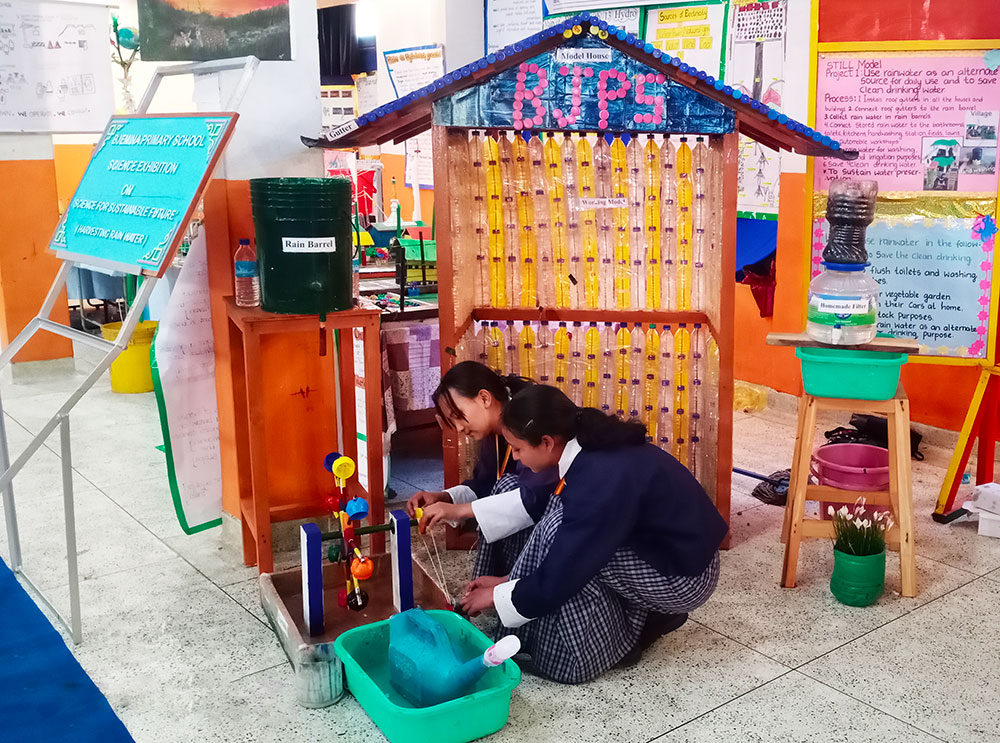Thinley Namgay
“Rainwater that runs off the roof gets collected in the gutter. Then it runs through a pipe to the rain barrel,” a student from Bjemina Primary School (PS) explains, pointing to a model in front of a neatly dressed group. The rainwater is then channelled to the turbine and rotates it producing electricity.
“The purpose of turning the turbine is to make the shaft of the motor spin. When the shaft turns, the mechanical energy inside the motor is converted into electrical energy,” another student said.
The four students exhibited models that harvest rainwater, and how to generate electricity using rainwater.
The group came first among the 10 schools from Thimphu that participated in a two-day intra-dzongkhag elementary school science exhibition at Khasadrapchu Middle Secondary School (MSS) in Thimphu that ended on November 6. The participants were students from Classes IV to VI.
The students said that rainwater could address the ever-increasing demand for water in the region. “The rainwater can be used for drinking, irrigation, and in the automobile workshops, among other uses.”
Securing 676 points, Bjemina PS stood first, followed by Kuzhugchen MSS, and Sisina PS with 639 and 614 points, respectively.
Kuzhugchen school presented on eco-friendly and sustainable farming, and Sisina school exhibited technology on renewable energy.
Thimphu dzongkhag education sector organised the exhibition with the theme ‘Exploring Beyond the Classroom’ to encourage students to research scientific concepts, gain skills, and cultivate a positive attitude to learn science.
The exhibits were assessed on their display, the students’ ability to explain the scientific processes, their ability to relate scientific concepts to their lives and environment, and their proficiency in handling equipment.
The officiating chief dzongkhag education officer, Lham Tshering, said the sector attempts to prioritise self-discovery and encourage the will for exploration in brilliant young minds.
“The dzongkhag education sector is geared towards providing opportunities in making Science, Technology, Engineering and Mathematics (STEM) subjects a part of the students’ daily language as per His Majesty’s Kasho,” said Lham Tshering.
Lham Tshering said that the annual dzongkhag education report 2018 showed that the mean marks in science have declined over the past three years. “The report showed that science marks were low compared to other subjects.”
In 2017, the mean marks for class V and VI were 57.1 and 62.8, respectively.
Education Minister Jai Bir Rai said that science and mathematics are essential subjects in the 21st century, and students must make it a habit to learn more about these subjects.
Edited by Tshering Palden


